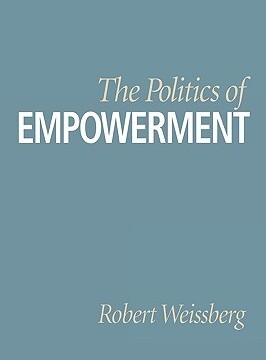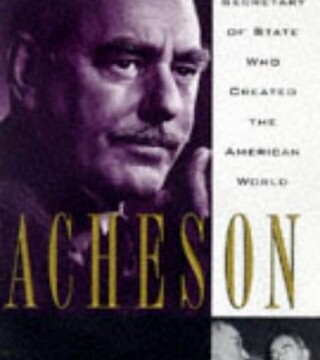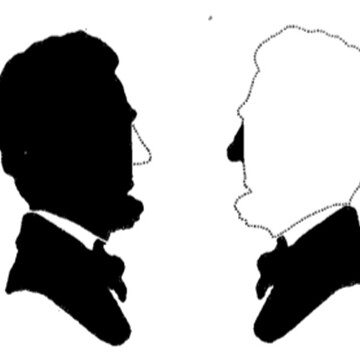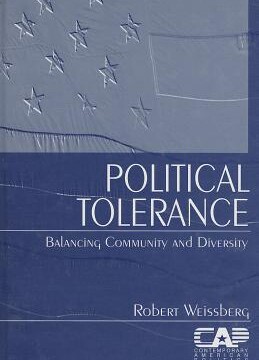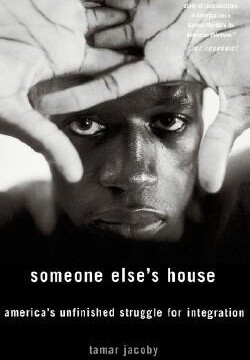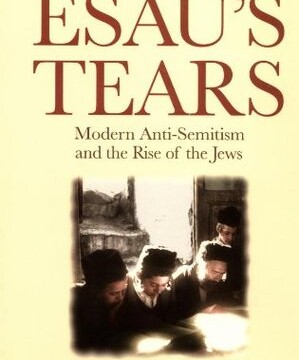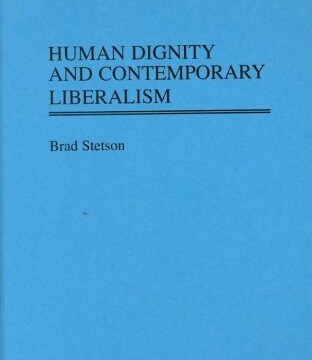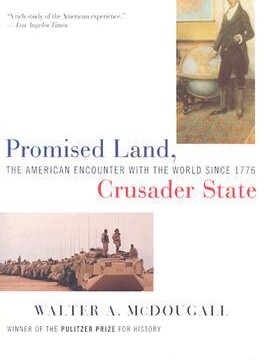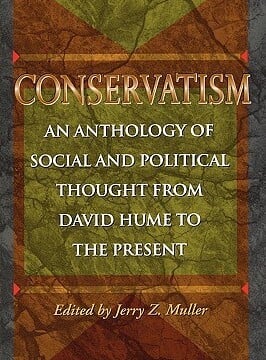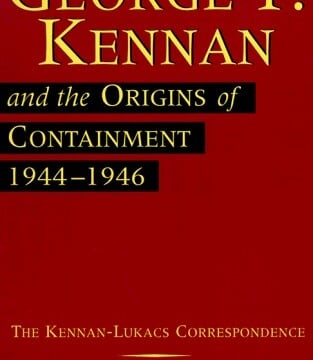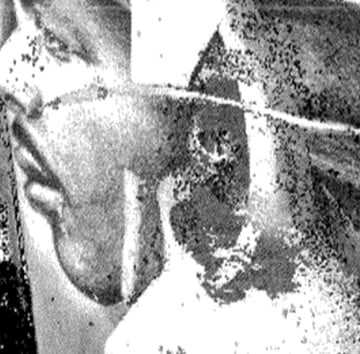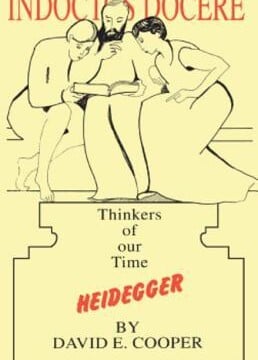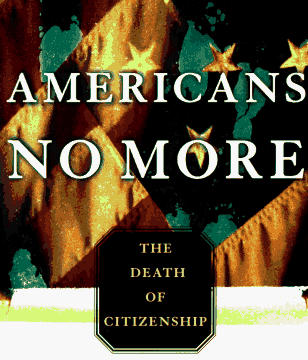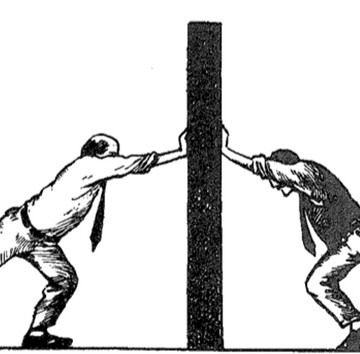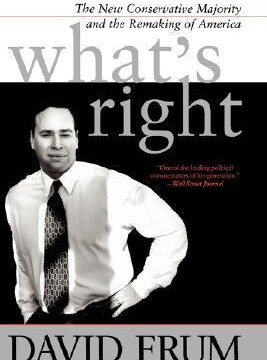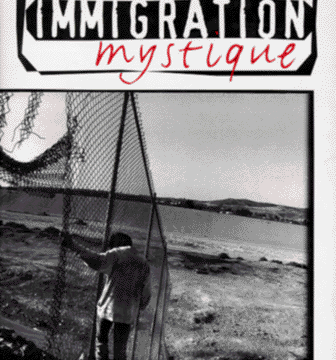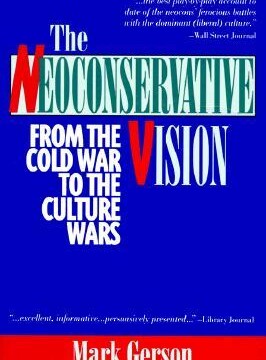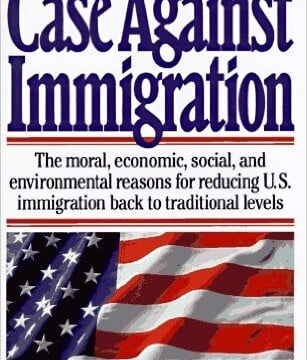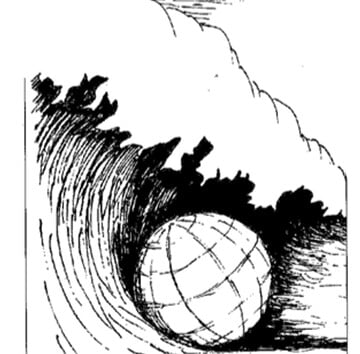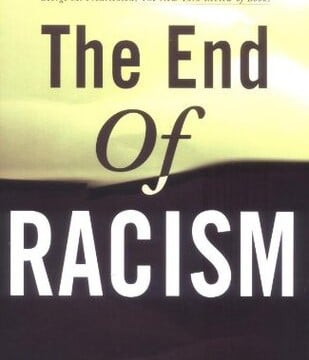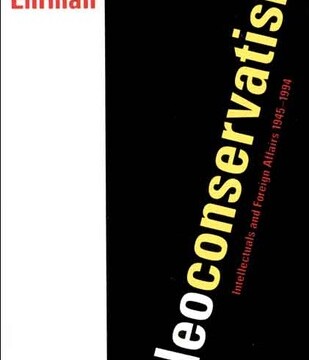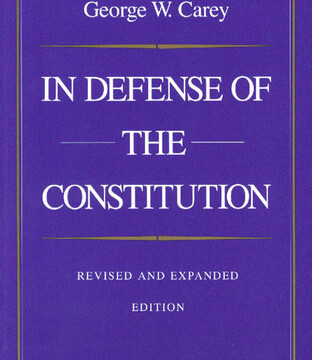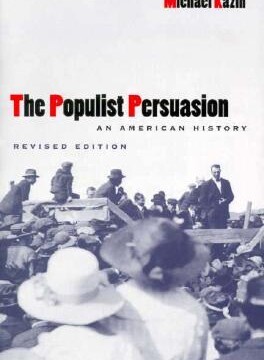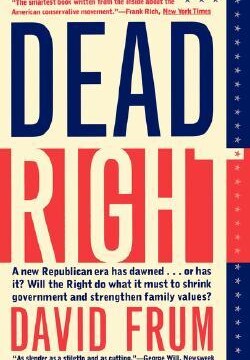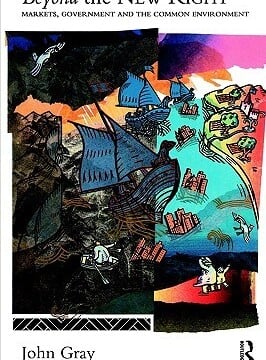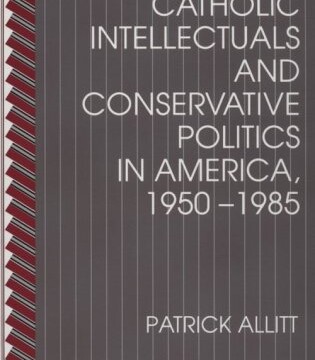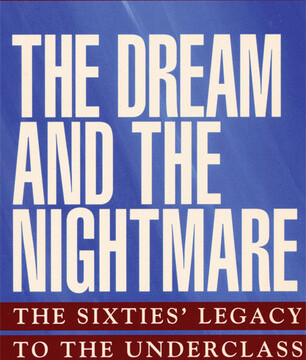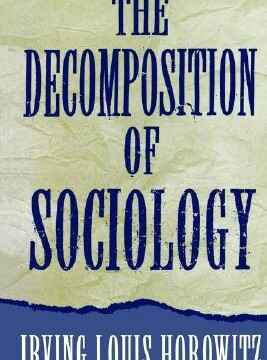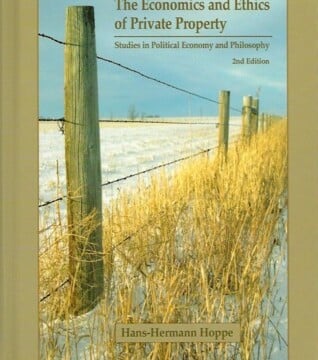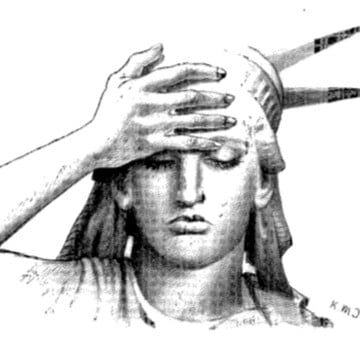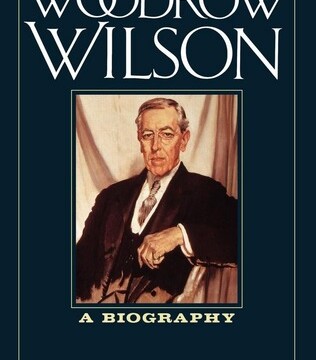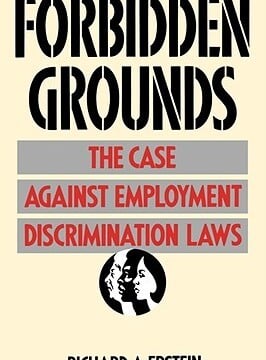Robert Weissberg produced the present volume, on the concept and practice of empowerment, almost simultaneously with another monograph, on tolerance, published last year. Both studies highlight the difference between a political ideal and its grim result—that is, between what people are told the ideal consists of and what they ultimately get. In Political Tolerance, Weissberg...
Author: Paul Gottfried (Paul Gottfried)
Under Western Eyes
“When people talk of the freedom of writing, speaking, or thinking I cannot choose but laugh. No such thing ever existed. No such thing now exists; but I hope it will exist. But it must be hundreds of years after you and I shall write and speak no more.” —John Adams...
Occupied Territories
The introductory chapter of The Shadow University contains a powerful indictment of contemporary higher education. Kors and Silverglate get it right when they characterize university administrators as “careerists who have made a Faustian deal.” They are correct as well about the professorial, political, and cultural pressures that have turned institutions of learning into conduits of...
Present at the Deconstruction
James Chace’s biography of Dean J Acheson is a generally interesting book dealing with a provocative figure. What makes it less than engrossing is the predictability of Chace’s left-liberal judgments. Because of his pervasive bias, he never surprises: Republicans in the 1920’s were heartless plutocrats and dimwitted isolationists, against the working man and for tariffs....
Equality, Left and Right
Among the significant changes on the American intellectual right in the last 50 years is the growing emphasis on equality. From the speeches of Jack Kemp and the collected works of Professor Harry V. Jaffa to the arguments advanced for Proposition 209 in California, it seems that equality is not only a principle worthy of...
Psychological Phenomena
Robert Weissberg’s study of tolerance will not bring him academic good will, and the drab appearance of this volume will not attract a sufficient number of potentially favorable readers to make its author justly famous. So much the worse! The book is written with flair, even occasional humor, and offers riveting arguments regarding the changing...
Cry, the Beloved Community
From the rave reviews in the Wall Street Journal and other vehicles of low-octane conservatism, it seems that Tamar Jacoby has produced a work for the ages. Like earlier marvels by Dinesh D’Souza, John J. Miller, and Francis Fukuyama, this study was made possible by funds flowing from neocon foundations, a gesture thoughtfully repaid by...
More Power to the Faculty?
“More power to the faculty” is the current rallying cry of academic reformers. This idea pops up with a persistence that goes beyond ideological divides, appealing even to self-described academic traditionalists, who view professional administrators and boards of regents and trustees as philosophically out of tune. This criticism does seem valid if one looks at...
Against the Racketeers
Albert S. Lindemann has touched raw nerves with Esau’s Tears. Playing on the rabbinic legend that the Messiah will come only when Jacob’s elder brother ceases to lament being cheated of his birthright—i.e., when the gentile nations no longer feel hatred for Jacob’s descendants — Lindemann offers a vue d’ensemble of modern anti-Semitism as a...
Moonie Gold
Last December, the Weekly Standard, in an article by Matt Labash on a mass wedding conducted by the Reverend Sun Myung Moon at RFK Stadium on November 9, offered a feast of vilification and innuendo. Though the Washington Post and the New Republic both lampooned the same event, Labash’s polemic had a more vicious edge....
The Political Vocation
In his book on declining social morality and the transformations of liberal ideology, Brad Stetson goes after deserving targets. He unmasks the liberalism that holds the media, universities, and the publishing industry in thrall and stresses the will to total domination that accompanies liberal concerns about racism, sexism, self-actualization, and the costs of low self-esteem....
Fascism and Anti-Fascism
For the last several months, a war crimes trial has been unfolding in Bordeaux in Southwest France. The defendant, Maurice Papon, an octogenarian on the verge of cardiac arrest, was the subprefect of the Gironde during the Vichy regime. At that time Papon and his superior, Maurice Sabatier, oversaw the deportation of thousands of Jews...
The Myth of American Isolationism
“Internationalism is a luxury which only the upper classes can afford; the common people are hopelessly bound to their native shores.” —Benito Mussolini Walter A. McDougall, a professor of international relations at the University of Pennsylvania, presents useful truths about the history of American foreign policy. The United States, he correctly...
Thomas Molnar and Late Modern Decadence
Thomas Molnar has published books in English, French, and Hungarian, while seeing some of his writings, mostly those dealing with the “mal moderne,” translated into German, Spanish, and Italian. Though defined in his work in various ways, from rampant Catholic heresy to political utopianism, this evil for Molnar is best described by his phrase l’hégémonie...
The Rump Right
“A perfect democracy is the most shameless thing in the world.” —Edmund Burke For some time now it has been the opinion of European political theorists that right and left have become antiquated points of reference. Allegedly, these terms, archaic by the time of the Cold War, were kept in use...
Polonophobia, Cont.
“Polonophobia,” my essay in the January issue of Chronicles, engendered moving and informed responses for which I am most grateful. Professors Ewa Thompson and Alex Kurczaba and Dr. Wojciech Wierzewski have all praised me generously in letters to the editor [Eds. note: See the Polemics and Exchanges section of the April issue], but, according to...
Targeted Missiles, Guided Democracy
“Democracy is more cruel than wars or tyrants.” —Seneca The correspondence on the origins of the Cold War between John Lukacs and George Kennan, who have been friends for more than four decades, is not entirely unknown to fans of either. Much of it was printed last year in American Heritage,...
François Furet, R.I.P.
François Furet’s death on July 11 in Toulouse at age 70 ended the career of a truly iconoclastic historian. Despite Furet’s association with the political left, as a youthful communist and middle-aged social democrat, his scholarship went against the grain of the French and American academic establishments. In Penser la Révolution and in other revisionist...
Donald Warren, R.I.P.
Donaid Warren’s untimely death in May has deprived the American and European populist right of a truly penetrating analyst. From his pioneering study of “Middle American radicals,” a term he coined in 1976, to his dense biography of Father Charles Coughlin published last year. Professor Warren examined in depth the populist bridge between modern democracy...
Reflections in Miniature
Philip Jenkins’ book is a gold mine of information on pro-fascist and pro- Nazi groups in Pennsylvania during the 1930’s. Jenkins makes informative distinctions among the various bearers of Camicie fasciste, differentiating silver, khaki, black, and brown shirts and explaining the significance of each. He is also careful not to exaggerate the importance of any...
Martin Luther King, Jr., as Conservative Hero
In Campus, a newsletter of the conservative Intercollegiate Studies Institute, a letter last spring from a student subscriber questioned comments about Martin Luther King found in the preceding issue’s feature essay, “A Rage for Merit.” This article portrayed King as a passionate critic of affirmative action, and this, according to the student, does not square...
Authenticity and Opportunity
David Cooper has written a first-rate introduction to the life and thought of Martin Heidegger. Despite the brevity of his work, Cooper has packed into it a biographical sketch of Heidegger, a discussion of Being and Time (1927) and of Heidegger’s other interwar and postwar writings, an appraisal of interpretive literature dealing with his subject’s...
Managed Citizenship
Georgie Anne Geyer is no stranger to the immigration issue. For years her syndicated columns have included spirited criticism of efforts toward the redefinition of American identity. They have attacked what Geyer calls the “citizenship mill,” the thoughtless naturalization of masses of Third World residents (not all of them legally in the United States), bilingual...
Polonophobia
Since the fall of the Soviet Empire, no former Soviet captive nation has fared as badly as Poland in the American press. In the last year alone, unqualified denunciations of alleged Polish atrocities against Jews, most open to question, have been put into the New York Times, Washington Post, International Herald Tribune, Toronto Star, Toronto...
And What Isn’t . . .
In this collection of his occasional papers, David Frum once again demonstrates his worthiness to the harmless persuasion. Having agonized over his uneven prose, I finally concluded that Frum’s intellectual weaknesses are his practical strengths. His writing never offends anyone in the political mainstream, or upon whom his career as a publicist may depend. It...
Robert Nisbet, R.I.P.
The recent death of Robert Nisbet has removed from our midst one of the premier social thinkers of the century. His works, particularly The Quest for Community (1962) and The Sociological Tradition (1966), will be read as long as literate people consider the nature of human relations. Nisbet brought to his discipline both a rich...
Myths and Mistakes
What all the wise men promised has not happened, and what all the damned fools said would happen has come to pass.” —Lord Melbourne In this highly informative book, Chilton Williamson, Jr., walks us through the tortuous history of American immigration policy. Along the way he draws attention to critical milestones, such as the 1924...
A Child’s Garden of Neoconservatism
Now a law student at Yale University, Mark Gerson has devoted several years of his young life to a lucrative task: gilding the lily for neoconservative patrons. As a contributor to Commentary, the Wall Street Journal, and the New Republic, he has spoken out on behalf of the harmless persuasion and is now about to...
Against the Invaders
Roy Beck’s brief against immigration abounds in useful but also familiar statistics: e.g., since the Immigration Act of 1965, 30 million immigrants, mostly from Third World countries, have entered the United States; at least half of our births in the last 30 years are traceable to these immigrants; without them, the current population of the...
Whither the Populist Wave
For at least a decade, a changing political climate has been upsetting the media and the practitioners of politics as usual. Populist movements have been spreading through the West under such names as the Lega Nord (Italy), the National Front (France), Freiheitliche Partei (Austria), the Reform Party (Canada), and Pat Buchanan’s American Cause. Though there...
Paradise Recovered
Mr. D’Souza might have reconsidered the title of his book, for he is not describing the end of racism. Glenn Loury recently observed a predilection for “end” themes in recent neoconservative tracts: Fukuyama with the end of history and D’Souza with the end of racism, Loury explains, have taken Hegelian (or pseudo-Hegelian) phrases to express...
Geneology of a Movement
During many an evening conversation, Sam Francis, Murray Rothbard, Lew Rockwell, and I have dwelled on a particular topic with relish: Who was the first neoconservative? Our responses varied, depending on the latest neoconservative outrage and which obnoxious historical personalities we were then reading about. After looking at John Ehrman’s book and the summer issue...
Tackling the Judiciary
Among conservative constitutional scholars, George Carey best demonstrates the knack of remaining perpetually relevant. From his collaboration with his own mentor Willmoore Kendall in the 1960’s through his many writings on the federalist papers over three decades, some included in this volume, Carey has worked to show the value of the American founding to our...
Missing the Obvious
Michael Kazin (editor of Tikkun, son of a New York man of letters, Alfred Kazin, and professor of history at American University) has produced a book on populism which highlights his own concern: namely, that “left populism” is losing its appeal in America. For Kazin this is a lost opportunity. At the end of the...
Dead Weight
“A conservative government is an organized hypocrisy.” —Benjamin Disraeli It may speak volumes about American conservatives that David Frum’s critique of “big government conservatism” permitted William Buckley—or so Buckley claims on the dust jacket—to enjoy “the most refreshing ideological experience in a generation.” To a conservative movement led by advocates of national uplift allied with...
Telos and the Populist Right
The spring 1994 issue of Telos, dealing primarily with the European New Right, signaled the drift of this formerly Marxist journal toward the populist right. This change in direction has been increasingly obvious for at least a decade and could be seen in the turning of Telos editor Paul Piccone from his New Left activism...
Loss of a Principled Critic
With Christopher Lasch’s death last March, our society lost a probing and principled critic. According to one by now standard biography, Lasch started his career as an antiwar activist and Marxist-Freudian synthesizer and by the end of his life had moved to the right with a defense of traditional communities. There is truth in this...
The Cosmopolitan Temptation
The two books reviewed here provide a contrast both in style and in substance. Whereas Thomas Molnar treats Utopians and historical optimists with exuberant contempt, Michael Ignatieff bewails the fact that nations and nationalism have not yet disappeared. Molnar is proud of his relentless realism, in which politics are related to man’s fallen state; Ignatieff,...
New Right, New Wrong
John Gray’s latest book, an anthology of essays, confronts unflinchingly the state of conservatism in the Anglo-American world. Resistant to the happy talk about a conservative renaissance in the 80’s, Gray, a Whiggish Oxford don and a scholar of classical liberalism, stresses the ineffectiveness of the respectable right in both the United States and his...
A Man of Letters
Russell Kirk’s death on April 29 deprived both the world of letters and high-toned American conservatism of one of its premier representatives. Author of numerous studies on topics ranging from constitutional law to economics and creator of Gothic mysteries and ghost stories, Kirk left behind a corpus testifying to his rich learning and literary gifts....
Catholic Moments
Patrick Allitt’s study of Catholic intellectuals and their relationship to postwar conservatism is clearly presented and full of stimulating perceptions. Basic to this book is the contrast between two generations of American Catholic thinkers with some connection to the right: the generation of the 50’s as typified by the Catholic anticommunists grouped around National Review...
Toughs, Softs, and Jewish Masculinity
Jewish stereotyping is an activity in which Jews and their enemies have both engaged. Among the self-images that Jews have popularized is that of the bookish Jewish male. The medieval biblical commentator Rashi depicts the patriarch Jacob as a scholar and homebody, “in the tradition of Shem and Eber,” Jacob’s two Semitic ancestors to whom...
Blaming the Sixties
“In dirt and darkness hundreds stink content.” —Alexander Pope Despite the hype that welcomed this book—gushing praise in the Wall Street Journal and National Review and a bash hosted by the Kristols for the Bradley Foundation—Myron Magnet’s study of American political culture is surprisingly sound. The reasons the neoconservatives showcased this work are obvious: namely,...
Recomposing Sociology
The Decomposition of Sociology, an anthology of essays, testifies to the breadth of its author’s interests and reading. While the book has a central theme—which is the problems, some self-inflicted, that modern sociologists face in making their discipline rigorous and nonideological—within the confines of that theme, Horowitz ranges freely and confidently among many topics, some...
Recently Discussed
Gays and Judaism were recently discussed in the summer 1993 issue of the Public Interest. Since the author of the article, Dennis Praeger, had been identified a few weeks before in Insight as a political conservative and Jewish traditionalist, one might have expected to find here an attack on sexual perversion based on Leviticus 18....
Cui Bono?
Hans-Hermann Hoppe’s essays will not be everyone’s cup of tea, particularly in view of the author’s stated purpose to defend individual property rights as the basis of a free and productive society. Hoppe tackles his job of apologetics by engaging in both economic analysis and ethical theorizing. The economic aspect of his work is mostly...
Therapeutic Democracy
It is impossible to judge what is wrong with democracy unless we first understand its changing and constant features. The democratic principle as we now encounter it is both ancient and rudely contemporary. Among the ancient aspects of our contemporary democracy are the spirit of equality and the dangers that result therefrom. Aristotle properly perceived...
Talking Facts: The New Anti-Semitism
In October 1992 Commentary printed an “observation” by David Glasner, “Hayek and the Conservatives,” which abounded in glaring disinformation. The pictures there given of the America First movement as a rallying point for anti-Semitic kooks and of the Old Right as a collection of bigoted psychopaths, pending the arrival of the neoconservatives and their Hayekian...
A Wilson for Our Times
John Lukacs has observed that our century’s two most significant revolutionaries were Lenin and Wilson. Of the two, according to Lukacs, the internationalist Lenin had less destructive influence in the long run than the democratic moralist but fervent nationalist Wilson; today it may be said that the Wilsonians have outlasted the Commies. Democracy and national...
Courage in Profile
Like Richard A. Epstein’s earlier book Takings, dealing with the defense of property in the Fifth Amendment, his latest one combines legal study and economic analysis with megadoses of political and social theory. Though Epstein explores, for the most part, civil rights legislation aimed at the removal of job discrimination, he devotes the opening section...


